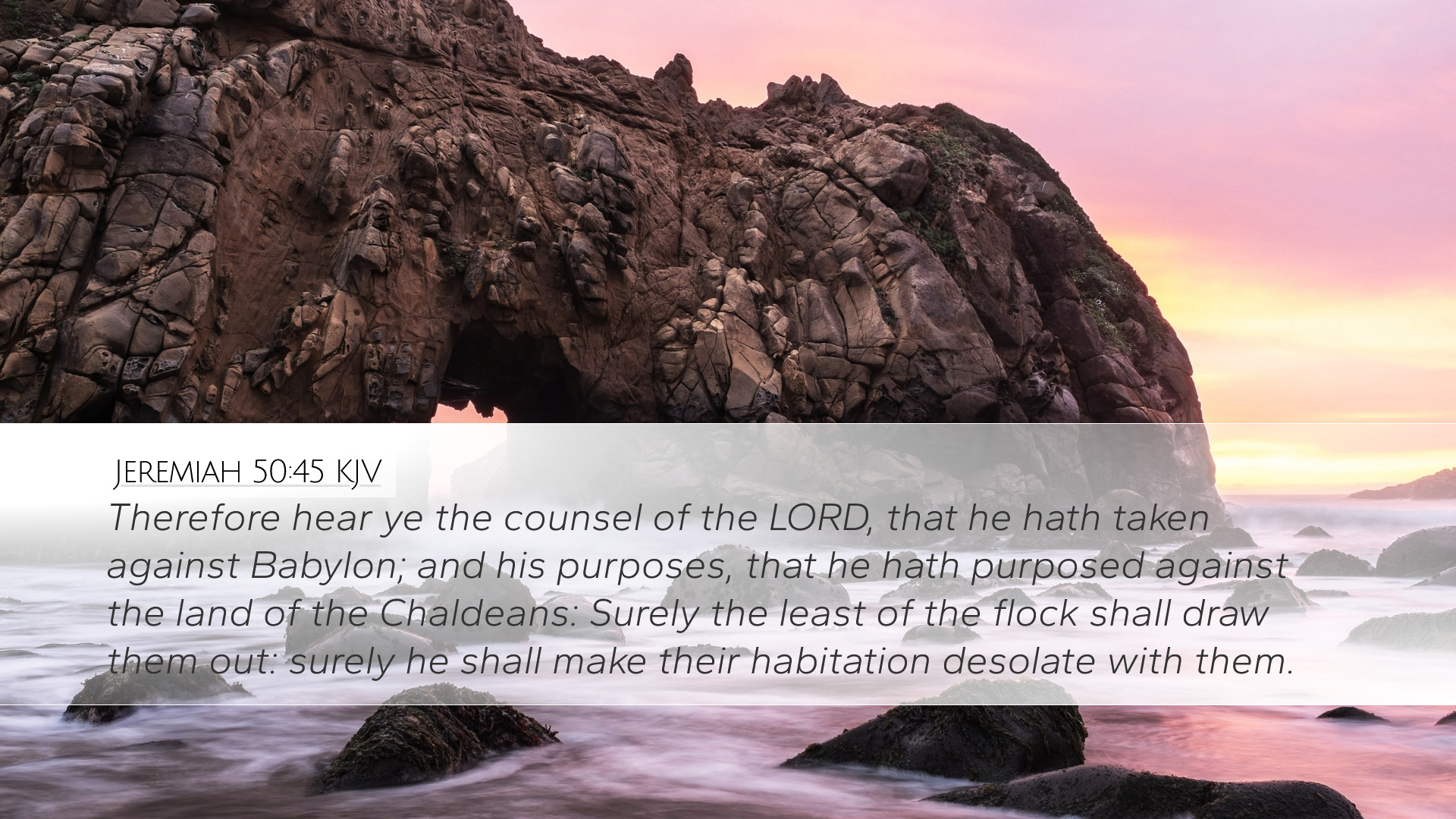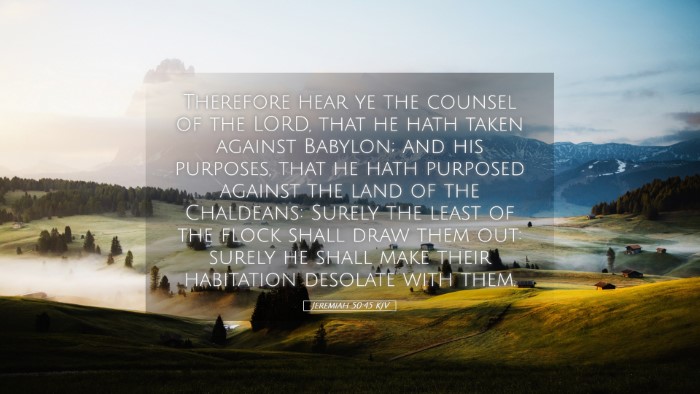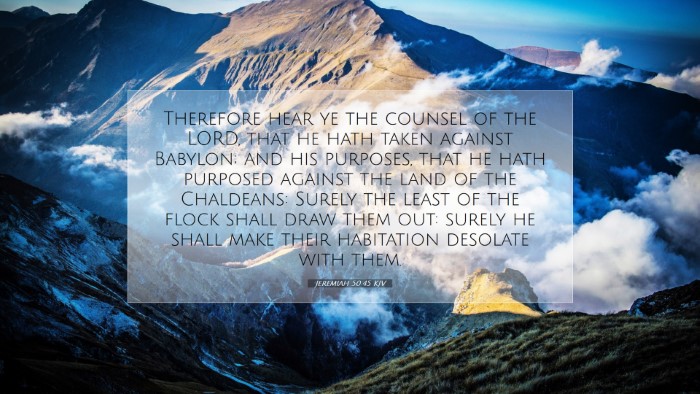Jeremiah 50:45 - Bible Commentary
Text of Jeremiah 50:45: "Therefore hear ye the counsel of the LORD, that he hath taken against Babylon; and his purposes, that he hath proposed against the land of the Chaldeans: Surely the least of the flock shall draw them out: surely he shall make their habitation desolate with them."
Introduction
The verse from Jeremiah 50:45 is a poignant reminder of God's sovereignty and judgment against Babylon, symbolizing the larger theme of divine retribution against the enemies of God's people. Commentators throughout history have drawn insights from this text, focusing on its implications for judgment, prophecy, and God's ultimate plan of redemption.
Analysis of the Verse
In this verse, the prophet Jeremiah conveys a message of judgment directed towards Babylon, which represents not only a nation but also a system of opposition against God and His people. Understanding the context and implications of this passage is crucial for pastors, students, and theologians alike.
1. The Counsel of the LORD
Matthew Henry emphasizes the importance of divine counsel in this prophecy. He notes that God's plans are immutable and that His counsel is perfect, emphasizing that it is wise to heed what the Lord reveals about impending judgments. The phrase "hear ye the counsel of the LORD" serves as a call to listen closely to God’s warnings, recognizing that He does not act out of caprice but with a purpose rooted in justice.
2. The Purpose Against Babylon
Albert Barnes notes that the prophetic declaration signifies a certainty about God's judgment against Babylon. Babylon's destruction is portrayed as a just response to its arrogance and wickedness. Barnes stresses that this judgment showcases God's power over all nations and empires, reinforcing the idea that no power stands against His will.
3. The Role of the Least of the Flock
Adam Clarke highlights the imagery of "the least of the flock" and its significance in the context of judgment. It suggests that even the most insignificant or powerless can be instrumental in executing God’s judgment. This points to a divine strategy that turns the tables on the powerful, using the meek to dismantle the proud. Clarke elaborates that it symbolizes God's ability to use even the least likely means to fulfill His purposes, demonstrating that everything is under His control.
4. Desolation of Habitation
The latter part of the verse, "surely he shall make their habitation desolate with them," illustrates the complete and utter desolation that God will bring upon Babylon. Matthew Henry comments that such desolation was warranted due to the gross sinfulness and idolatry of the Babylonians. This desolation serves as a grave warning to those who oppose God and His people, communicating that the end result of persistent rebellion is ruin and abandonment.
Theological Implications
This passage draws attention to several theological themes relevant to contemporary believers:
- God's Sovereignty: The certainty of God’s plans and purposes highlights His absolute authority over nations.
- Judgment and Justice: The reality of divine judgment calls believers to reflect on their actions and the state of their nation in relation to God’s standards.
- Hope for the Oppressed: God’s promise to bring down oppressors offers hope to those who are marginalized by powerful systems.
- The Use of the Weak: The idea that God can use the least among us to accomplish His will is a profound declaration of hope and empowerment for believers.
Practical Applications
For pastors and teachers, this verse can serve as a foundation for teaching about the importance of righteousness and the dangers of pride. Here are some practical applications to consider:
- Encourage Repentance: Use this verse to call congregations to individual and corporate repentance, reminding them of the consequences of turning away from God.
- Strengthen Faith: Highlight how God’s plans will ultimately prevail, encouraging faith in His justice and timing.
- Empower the Marginalized: Emphasize the theme that God often chooses the weak to confound the mighty, inspiring those who feel insignificant to step into their God-given purpose.
- Warn Against Complacency: Encourage vigilance against the societal norms that align with oppression and injustice, reflecting God's heart for the oppressed.
Conclusion
Jeremiah 50:45 encapsulates profound truths about divine judgment and the dynamics of power within God's kingdom. The insights drawn from public domain commentaries allow us to appreciate the depth of God's word and its relevance for our lives today. Understanding that God assures justice and that He often employs the least likely to accomplish His purposes encourages believers to trust in God's overarching plan and pursue righteousness in their own lives.


